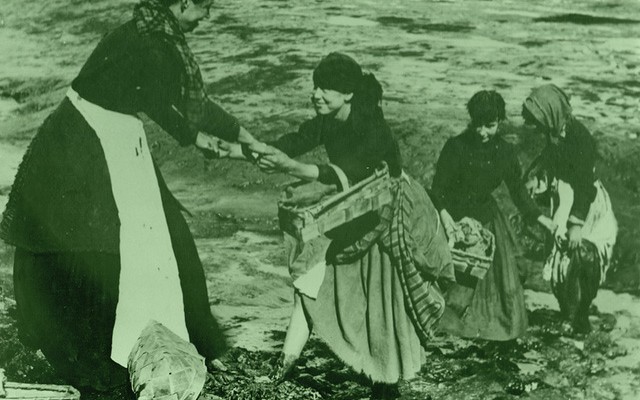It’s never the embarrassing things that keep me awake in those bleak 2am moments when I do my moral accounting. It’s not, for example, the time when I totally forgot the opening prayer for some event in front of the entire school, and ended up running off stage.
What makes me burn are those times when I should have been kind and wasn’t, when a gesture might have made a difference and I didn’t make it. Perhaps it would have made no difference, but that’s not the point. I know that in those moments I betrayed something fundamental in the contract of human relationship.
You don’t forget kindness. There was, for example, one very bad Saturday morning at a bad juncture in my life. I had spent a tense half hour in the local supermarket doing my weekly shop, yelling at my small children that no, they couldn’t have the fucking Fruit Loops. When I arrived at the crowded cash register, I discovered that there was no delivery service that day. Somehow I had to get my load of shopping home without a car.
I was standing outside the supermarket with my laden trolley, feeling totally defeated in the way that happens when one more trivial problem makes your whole life seem overwhelming, when an older woman approached me. I think I half flinched, expecting that she would reprimand me for being a terrible mother who shouted at my children, or that she would criticise my unbrushed hair. Instead, she touched me gently on the shoulder and said, ‘You’re going to be fine. Just remember that in twenty years, none of this will matter.’
She made me laugh. And then I said sorry to my kids and we all went and had cake, and walked the shopping home.
Twenty years later I remember that stranger who was kind to a random distraught woman, and who transformed an insupportable day into something tolerable. It was simply a gesture of fellowship: a reminder that we’ve all been there, and that we can get through.
I remember how much that encounter mattered. I remember other encounters as well, the scarring brushes with unkindness. They stick too.
Lately I’ve been talking to too many crying people, crushed by their dealings with institutions whose systems explicitly stamp out this most valuable of human qualities. These are institutions created by other human beings who see no profit in kindness. They embody some of the many faceless cruelties of late capitalism.
Kindness tends to get a bad rep. It’s reduced to a merely personal thing, a sentimental gesture that’s disposable and ultimately meaningless. It’s often considered suspicious, because we locate it in the individual as a means of self-gratification, a form of vanity. ‘Virtue signalling’ is one of the creepier phrases the internet has donated to our vocabulary, but its sentiment isn’t merely a feature of the far right.
The power of kindness might be judged on how much energy is spent in its repression. We have vast, expensive institutional structures that exist to deny kindness: our immigration camps, for example. The political disinformation around refugees is there to give us reasons to be unkind. Against all available evidence, our government insinuates that the people in Manus and Nauru are not like ‘us’. They tell us that they are undeserving ‘economic refugees’, that they are dangerous to our democracy and safety. In a recent incident that turned on, of all things, an act of kindness – refugees gave a hungry child food – Immigration Minister Peter Dutton even intimated that they were paedophiles.
The public language around social welfare forbids kindness in the same ways. A system that supports those who are disadvantaged or in trouble is presented as a means by which undeserving people exploit taxpayers. The growing scandal over ‘robo-debt’ and the campaign for so-called ‘savings’ in the social welfare budget has brought many dehumanising terms back into prominence: ‘dole bludgers’, ‘welfare fraud’. Again, they’re there to give excuses not to be kind.
As history has shown repeatedly, the suppression of kindness permits acts of horror: massacres, concentration camps, slavery, child labour. The fact that none of these terms can be consigned to history should tell us something about how kindness figures in our collective psyche. As social animals we are atomised, isolated from each other, fearful of our differences, and therefore brutal. And the unkindness we show to our own species is only amplified in our treatment of the natural world.
Of course kindness can be cheapened, as can happen to all valuable things. It can masquerade as a fleeting click on a website, a passing pang of sympathy that is instantly forgotten. But real kindness isn’t merely a warm, fuzzy glow. Kindness can be angry and unsentimental, and it can be very strong. It encompasses something much larger than the self, and, like many much worse things, it’s contagious. Kindness is, first of all, an act of solidarity.
Read the rest of Overland 227
If you enjoyed this piece, buy the issue




